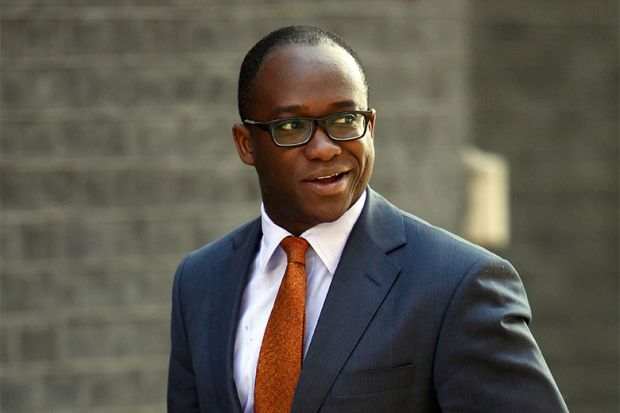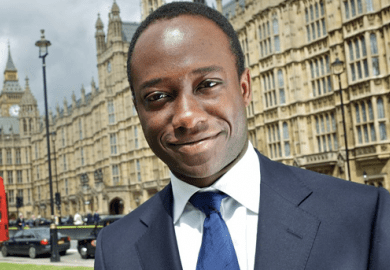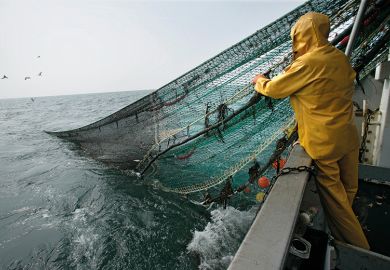Sam Gyimah has been accused of “retreating” on the UK government’s position on post-Brexit research collaboration after refusing to commit to associate membership of the European Union’s next framework programme.
Speaking at a hearing of the Commons Science and Technology Committee on 6 March, the universities and science minister said that he hoped that the UK could have a “deep and special relationship around science” following the country’s departure from the bloc next March.
The minister said that the UK was keen to engage with the successor programme to Horizon 2020, known as Framework Programme 9. British researchers have received €4 billion (£3.6 billion) to date from the current scheme, 15 per cent of all funds.
Mr Gyimah highlighted the publication of an “FP9 position paper”, outlining the Westminster government’s views about how any future programme could be improved.
“This is not, however, a commitment to associate to FP9 but it sets out a broad, wide-ranging positive vision for what would make the UK excited about FP9,” he said. “It shows we are engaging with the UK on this exciting collaborative project and not turning our backs [on it].”
However, Mr Gyimah’s wish to “keep all options open” and not commit to associate membership – a status held by 16 countries, including Israel, Armenia and Tunisia – disappointed Norman Lamb, the committee chair. He said that it was “something of a retreat” from prime minister Theresa May's expressed wish for a “far-reaching science and innovation pact”, as well as from a speech that Mr Gyimah gave to the committee’s Brexit summit on 22 February, in which he implied that associate membership would be the default position unless the cost was exorbitant.
Under the associate membership model, countries can access European framework funding in return for a cash contribution, and acceptance of certain EU rules.
Mr Lamb urged the government to “move rapidly” to confirm the UK’s participation in FP9, arguing that it was vital for the science community to get an “early” and “upfront” settlement on these issues, rather than leave it to the end of Brexit negotiations in 2019.
His more guarded comments about associate status also indicated a “different level of tone” compared with previous speeches, added Mr Lamb, who said that it was time for the government to “move beyond high-level ambitions” on post-Brexit research partnerships and spell out how it might work.
Mr Gyimah told MPs that “if it was left to me, alone as science minister, this is one area where we could come to an agreement” but pointed out that FP9 participation was bound up in wider negotiations.
The FP9 position paper, published on 6 March, contains no details on how the UK might participate in FP9, but backs calls for the programme to be opened up to researchers from around the world, who should be able to access EU funding “based on reciprocal co-funding or access to funding in their [own] country”.
“The terms of association and third country participation should be fair and should not seek to unnecessarily restrict, or to create undue financial or administrative burdens for new partners,” the paper says.
A separate paper published by the Department for Business, Energy and Industrial Strategy on 5 March also confirmed that it was “too early to speculate on whether the UK will seek to associate to FP9”.
Register to continue
Why register?
- Registration is free and only takes a moment
- Once registered, you can read 3 articles a month
- Sign up for our newsletter
Subscribe
Or subscribe for unlimited access to:
- Unlimited access to news, views, insights & reviews
- Digital editions
- Digital access to THE’s university and college rankings analysis
Already registered or a current subscriber?








